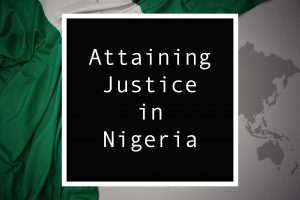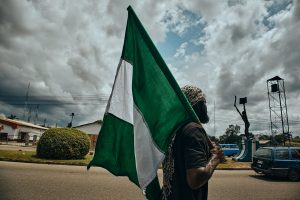Formal or Western education as we know is fast on the decline in Nigeria due to many contributing factors. But first, what is education? According to Dictionary.com, Education is the act or process of imparting or acquiring general knowledge, developing the powers of reasoning and judgment, and generally of preparing oneself or others intellectually for a mature life.
History of education in Nigeria
To understand the history of education in Nigeria and how we got to this current stage, there’s the need to distinguish between Western and Traditional education. That is we need to explore how education has evolved in Nigeria and how each culture has passed down and instilled knowledge unto the next generations during the pre-colonial and post-colonial eras.
Education in Pre-Colonial and Post-Colonial Era in Nigeria
Before the country’s formation, different ethnic groups practiced a form of indigenous or traditional education system in which valuable knowledge is passed down to students to preserve histories and traditions. In traditional settings, parents send out their children to different masters to acquire valuable skills in the society at the time. Common examples for boys are blacksmithing, drumming, trading, artistic works using mud and clays, hunting, and farming to name a few.
Girls on the other hand are meant to take after their mother to manage and engage in activities like cooking, fetching, and maintaining the family. These forms of education were engraved earlier in them to maintain and balance the status quo in society.
However, the arrival of the Arabian trade movement, followed by the Christian missionaries and finally the British colonial government marked a significant change in the timeline of education in what will soon be called Nigeria.
This period signaled the transition of education from an indigenous method to a “formal system” as it was called. But this was meant to separate the Western and Arab education system from the traditional which they deemed “barbaric” and “useless”. It should be noted that the Arabian trade movement came first. And succeeded in establishing the Almajiri system in which many northerners were trained in Islamic language and religion often through their trading enterprise, using methods like recitation, repetition, rote learning, and a host of others. They were mostly successful in the North as they met resistance in other parts of the country due to huge cultural differences.

Shortly after, the Christian Missionaries came with the introduction and development of Western (formal) education using various methods like recitation, assimilation, and content transmission. However, they aimed to expose the Indigenous people to Western culture and win souls for their evangelism campaign. However, this is all a plan to brainwash the Indigenous people to forsake their ways and embrace their new-found identity and to make colonization easier for the British government.
The Arab trade movement and the Christian missionaries created schools to advance and develop their newly brought educational system to lord over the traditional ways.
The final nail in the coffin is the eventual partitioning and colonisation which brought in full effect the westernisation of education in Nigeria.
It is important to note that, although the traditional type of education in formal Nigeria was informal. The method used for disseminating knowledge was more effective and suited the purpose of education in the country by then. The method achieved the result of preparing individuals for employment in their environments and making them useful and active citizens unlike what we have in our hands in present-day Nigeria.
However, the biggest limitation of the traditional system was the unavailability of a credible writing system which surprisingly the Arabians and Europeans brought. This led to a massive change in the Nigerian educational system.
Interestingly, the educational systems that existed in Nigerian societies before the arrival of the Europeans and Arabians was for the induction of members of the society into activities that were considered valuable and useful, especially their rich cultural heritage which was preserved and transferred from generation to generation through a system of oral traditional education.
However, the foreigners referred to this system as informal or community-based education. Although there were no official schools and professional teachers like their foreign counterparts, there were certain places for initiation, and adult members of society served as tutors. Because the system was essentially designed to enable the individual to play a useful role in society. The philosophy of old traditional education was based on the philosophy of functionalism, and productivity and to inculcate social responsibility of the community to individuals to become contributing members of the society.
For example, young ones were taught rules and regulations governing family, village and the individual, and the relationship between members of society and villages. Intellectual training included the study of local history, legends, poetry, reasoning, riddles, and proverbs. Those who excelled in these areas were highly revered in society as their expertise was of immense benefit to their society.
Conversely, before the agitation for independence began in Nigeria, to employ locals into their ranks and to serve the colonial empire, the British government played a massive role in enrolling many Nigerians into the Western/European ways of life. Western educational system was prioritised leading to more creation of schools and colleges.
However, the curriculum was Eurocentric focusing on subjects like history, literature, and mathematics. While paying less attention to Nigerian history, culture, and local languages, unlike the old traditional system. Thus this system was meant to favour the interest of the Europeans over Nigeria thereby producing a docile population subservient to British rule, further entrenching the perception that Western education was superior.
Such policy was the 1882 Education Ordinance, which was introduced for British West African territories, including Lagos, Gold Coast (now Ghana), Sierra Leone, and Gambia (Ijaduola, 1998).
The Nigerian educational system was heavily influenced by the British colonial government who had their own interests in mind. As it’ll be noted throughout the years leading up to independence, the Nigerian education system evolved based on the needs and priorities of her masters.
However, the impact of colonial rule on the education system continues to shape educational practices in Nigeria today. Unfortunately, the Nigerian education system has not been able to effectively address the societal issues inherited from its inception until now, particularly at the secondary and University level. This is because colonial education was aimed to eliminate traditional or indigenous culture and consciousness, while also grooming a privileged group of subservient individuals loyal to the western culture.
Failures and Decline of the Nigerian Education System and its Damaging Effects on Youths and Populace
The decline and deterioration of the current Nigerian education system started before it even began because it was never meant to suit the Nigerian culture and was never meant to serve the interests of her people. This is largely because the imported British education system was designed in such a manner to meet the needs and goals of the Europeans and to keep the Nigerian people docile to Western values despite several policy changes in the Nigerian educational system to date.
Also, the formal educational gap between the northern and southern regions of Nigeria widened over time, with predominantly Muslim areas in the north lagging behind, this can be traced to colonial rule.
The British government empowers its students in the UK to solve problems, criticize the norms, and challenge the order of things. It also gives the student some opportunities to choose a career pathway after their secondary education. However, even after independence, the Nigerian educational system still operates under the stronghold of the impact and effect of their colonial masters.
This is because a graduate from the Nigerian education system will leave school with a certificate and be searching for a white-collar job in a job market that is already saturated with too many graduates from different schools across the country and that makes the process so difficult to find a good job in the Nigerian labor market after graduating from school as against becoming an empowered agency after school like their British counterparts.
The British government makes laws and policies that help its educational system and institution develop and accommodate its citizens in one way or the other to become better. They have a working system that ensures that to a large extent, things are working smoothly e.g., good road network, constant and steady light supply, good transportation system, etc. Something the Nigerian government failed to implement and any country that cannot get it right with its education system in place is doomed for failure in every other aspect of their national life as a country.
Another major contributing factor to the decline of the Nigerian educational system is the leaders.
It’s true that the Nigerian government inherited a system that was biased towards Western ideals, and this shaped subsequent educational policies. However, the government has failed to focus on vocational and technical education, which could have been more relevant to local needs. Take us back to our traditional roots and address the challenges posed by the British colonial government.
However, the preference for British-style education mentality persisted like a cankerworm within Nigerian society as parents aspired for their children to attend prestigious British universities, perceiving them as superior to Nigerian institutions. This perception has had far-reaching consequences, with a significant brain drain of skilled Nigerian professionals seeking better opportunities abroad, perpetuating the notion that the British system remains superior.
It is also important to take a critical look at the education system in Nigeria for secondary schools. The federal government of Nigeria has given room for private individuals and organizations to provide educational services of teaching and training at primary, secondary, and tertiary levels. A close comparison between private and government educational secondary schools in Nigeria suggests there are so many areas of differences in their operations and deliveries.
For example, in private schools, students are made to pay for the services rendered. Pay for their school fees, uniforms, books, and other materials for learning. Whereas in government institutions, the government provides the facilities for learning in terms of school buildings, policies, quality control and standardisation. These policies are also adopted by private schools as guidelines for their operations.
When it comes to teachers’ qualifications in government schools for secondary education, the government set the standard for qualification with a minimum qualification of Bachelor of Education in any field of related discipline in teaching different subjects in secondary schools. (Learning, E. 2019:6). But in private schools the standard is somewhat different and varies for each school depending on the need for teachers in specific subject areas. The best place to learn is in a good learning environment.
In most cases, private secondary schools and Universities in Nigeria provide a better learning environment than government secondary schools and Universities, thanks to the uselessness of the government on public school affairs.
Another problem with the Nigerian education system is that most of the secondary schools and universities are in crisis due to poor infrastructures; professors and teachers moving abroad for better salaries. The majority of professors and teachers who could have trained to teach online programs are living abroad and the population numbers of students are growing hugely on a daily basis.
Another factor of the decline of the Nigerian educational system can also be attributed to poor funding. The Ministry of Education and bodies like ASUU is tasked with overseeing education. However they have mostly done poor jobs in fighting for the educational rights of the students, teachers, and lecturers to ensure the smooth progress of education in the country. Thanks to corruption and lack of vision of these organizations, education in Nigeria has suffered inappropriate funding. Leading to myriads of problems like non-payment of educators and staff allowances, strikes, school closures, massive protests and lack of interest in the profession and even education itself.
Another contributing factor is the failure of the Nigerian government to adequately accommodate the rising population demands for education in the country. The Nigerian population has grown astronomically since independence and the government has failed to integrate large parts of this growing youth population. According to the United Nations, 8.73 million elementary school-aged children in 2010 did not participate in education at all.
This low rate of enrollment to basic education in Nigeria has further increased illiteracy, mediocrity, and incompetence level in the Nigerian educational system. A bad sign of what’s to come for the Nigerian future as we are currently witnessing a wave of high level of employment, idleness and depression among youths due to lack of opportunities.
Conclusion
Before its inception, Nigerian culture has placed a high value on education. Even after achieving independence, the education sector has undergone several reforms. And the country has, although invested not enough in improving its educational system. However, despite these efforts, the standard of education in Nigeria has been declining over the years. The decline is visible in several areas including the quality of teaching, the curriculum, the infrastructure, and the learning environment. This decline has resulted in a lack of quality education, poor academic performance, and low levels of literacy among students.
To succeed and turn the messy situation around, the Nigerian government must go back to its traditional roots and depend less on Western and European ideologies by creating a system that embraces, builds, and nurtures homegrown talent. The government must also adequately cater to the needs of teachers and students alike, thereby creating a conducive environment for teaching and learning for both across all levels of institutions.
References ;








